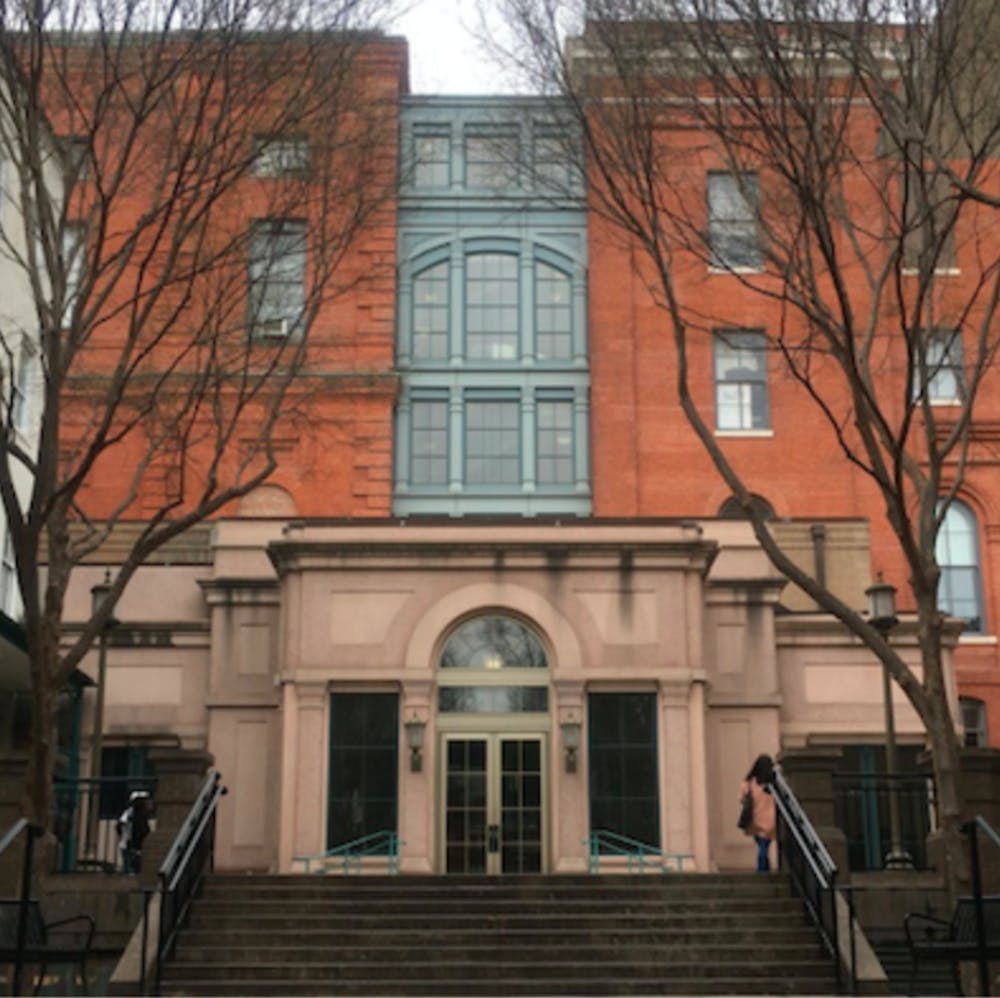Dean of the Peabody Institute Fred Bronstein announced in an email on July 31 that Peabody instruction would be entirely online for the fall semester. Two weeks into classes, Peabody students are still learning to adapt to this new era of remote performing arts.
Senior double bassist Sophy Kelsall noted that if students and professors had had more time to plan, the transition to online learning could have gone much smoother.
“Peabody decided to go online a month before classes were supposed to start, and I feel like that one month to get everything together wasn’t enough for them, and it’s really showing,” Kelsall said.
Peabody aims to recreate the collaborative nature of its instruction remotely using Soundtrap, an online recording workspace for musicians. With this program, every musician can record themselves, and the recordings can be edited and mixed.
Senior saxophonist Robert Brown explained that his group is facing technological challenges.
“My entire degree program is about recording, about figuring out how all this stuff works. It’s not really a matter of the student’s fault. It’s a lot of material, and it comes easily to some more than others,” he said.
Brown added that because students have different experiences in recording, the result is inconsistent audio quality within the group.
Senior violinist Claire Hebeisen, however, is optimistic about ensemble work this semester.
“I honestly believe that the ensemble department is doing their absolute best to create the most valuable experience possible for us,” Hebeisen wrote. “I have a reserved excitement for ensemble this year.”
Daniel Lima, a second-year graduate student in conducting, is the only conductor from his cohort who chose to continue classes instead of taking a leave of absence. With no ensemble to conduct, the practical application of the degree is vastly reduced.
“We don’t even have a quintet to conduct,” Lima said. “I’m taking a leap of faith that next semester will be better. If next semester will be better, I will be in a good position, because I will have a lot of things to conduct. But it’s just a bet.”
This semester’s operas will be performed remotely. Each singer will record themselves in front of a green screen and the recordings will be digitally compiled onto a virtual stage.
Junior soprano Gracie Shortridge explained that even if rehearsals feel disconnected, her performance skillset is expanding as a result of this adaptation.
“Students are going to come out of this much more self-sufficient,“ Shortridge said.
She added that these skills will be particularly useful if, going forward, the state of the pandemic doesn’t change and students must continue to perform remotely.
Second year graduate student and baritone Obi Okechukwu highlighted that the difficulty in carrying out virtual operas has heightened because budget cuts led to the termination of opera coordinator Catrin Davies.
“She was very vital. She would plan all of the rehearsals, everything was very organized,” Okechukwu said.
Okechukwu explained that with Davies gone, students received minimal notice of upcoming rehearsals — as little as the day of.
Junior dancer Rush Johnston explained that, since the spring semester, the dance department has made many positive adjustments to their virtual classes.
“This semester, they really made sure that each student had something better,” Johnston said. “They made sure we had access to a floor and a bar, and for the students in Baltimore, they made it possible to rent equipment from the library.”
Lima noted that the orchestra has also adapted so that students can have better opportunities in the future.
“We are planning to do concerts outside somewhere, respecting social-distancing and all the health policies,” Lima said. “There are a lot of musicians here in Baltimore, and they are all so crazed to play with someone else.”





